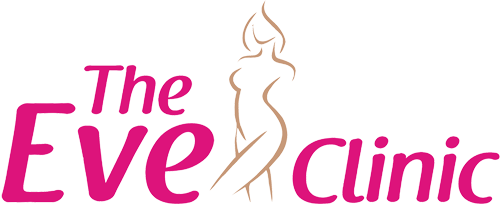About Acne (Pimples/ Breakouts)
- Acne or pimples is one of the most common skin disease treated by dermatologists.
- Acne treatment includes oral medicines and topical acne creams to cure the existing skin lesions and prevent permanent scarring.
- Other therapies include acne laser and chemical peels.
- Important part of acne treatment includes acne care and precautions that can be incorporated in daily lifestyle.
- Acne can have a real impact on a person's self-confidence.
What is Acne?
Cause of acne
Acne occurs when oil glands attached to hair follicles are stimulated at the time of puberty by elevated male hormones.
Oil and dead skin cells become trapped and clog the hair follicle, that enlarges, producing a bump. The follicle wall may rupture resulting in a pimple.
Acne include

Quick facts about Acne/Pimples
Myths about Acne
1. Acne caused by lack of hygiene
2. Blackheads are caused by dirt trapped in the pore.
Blackhead or open comedo, is an accumulation of dead skin cells and sebum plugging the pore.
3. Acne is contagious.
4. Acne is only a problem of teens.
Though acne is most common among adolescents, it can occur at any age.
Adult acne is a common variant
5. There is no harm in popping pimples.
It will only aggravate the condition.
6. Acne is the result of sexual urges, sexual activity, or masturbation.
Not true.
7. Acne goes away on its own.
Acne Treatment is necessary to avoid acne marks and permanent scarring.

If pimples are leaving scars and over-the-counter acne creams are not helping, it's time to see the dermatologist for acne treatment.
Acne therapy:
Medicines
Chemical Peels Salicylic acid and Glycolic acid peels
Light therapy- Blue and red light for acne treatment
Acne laser and IPL (Intense Pulse Light) for acne treatment
Acne scar Removal
Acne is disease of the hair follicles of face (face acne), chest, and back (back acne) that affects almost all boys and girls during puberty.
Cause of acne
Acne occurs when oil glands attached to hair follicles are stimulated at the time of puberty by elevated male hormones.
Oil and dead skin cells become trapped and clog the hair follicle, that enlarges, producing a bump. The follicle wall may rupture resulting in a pimple.
Acne include
- Whiteheads/ Closed comedo It is a follicle that is filled with sebum, but lacks small opening to the skin surface. Since the air cannot reach the follicle, sebum is not oxidised, and it remains white.
- Blackhead/Open Blackish bump on the skin due to clogging of the follicle wide open on the skin surface. Contains dead skin cells and sebum, which darkens as it oxidizes on contact with air.
- Pustular skin lesions-zits or pimples
- Cysts (deep skin lesions)
Quick facts about Acne/Pimples
- Most common areas of involvement- face, neck, back, chest & shoulders.
- Acne most frequently effects teen and preteens.
- Acne is not limited to teens, many men and women suffer from adult acne.
- Acne runs in families, if your parents had acne, your chance of developing acne is higher.
- In females, in addition to puberty, there are significant hormonal changes during menstruation, pregnancy, menopause and perimenopause, that can develop or flare acne.
Myths about Acne
1. Acne caused by lack of hygiene
2. Blackheads are caused by dirt trapped in the pore.
Blackhead or open comedo, is an accumulation of dead skin cells and sebum plugging the pore.
3. Acne is contagious.
4. Acne is only a problem of teens.
Though acne is most common among adolescents, it can occur at any age.
Adult acne is a common variant
5. There is no harm in popping pimples.
It will only aggravate the condition.
6. Acne is the result of sexual urges, sexual activity, or masturbation.
Not true.
7. Acne goes away on its own.
Acne Treatment is necessary to avoid acne marks and permanent scarring.
Acne care and precautions
- Avoid facial scrubs/exfoliating scrubs and following a proper skin care regimen.
- Cleanse with salicylic acid or benzoyl peroxide cleanser.
- Avoid over washing, results in rebound increase in oil.
- Don't pick or scratch pimples, results in acne marks.
- Keep your hair clean and free from dandruff.
- Take care of greasy/oily hair and avoid overnight application of oil, this can aggravate Face acne.
- Keep your hair away from face.
- Be careful while shaving.
- Avoid expensive cosmetic regimens. It can clog the pores and lead to breakouts.
- Wash your face after workout, sweat with skin oils can trap dirt and bacteria in pores.
When to visit the Dermatologist for treatment of acne?
If pimples are leaving scars and over-the-counter acne creams are not helping, it's time to see the dermatologist for acne treatment.
Acne therapy:
Medicines
- Oral- Antiboitics, Isotretinoin, Hormonal medicines
- Topical- Acne creams containing antibiotics, benzoyl peroxide, Tretinoin, Adapelene.
- Face washes containing benzoyl peroxide and salicylic acid.
Chemical Peels Salicylic acid and Glycolic acid peels
Light therapy- Blue and red light for acne treatment
- Light is absorbed by pigment in the bacteria causing acne.
- This produces free radicals that kill the bacteria.
- Used twice weekly reduces the skin lesions considerably.
- safe
Acne laser and IPL (Intense Pulse Light) for acne treatment
- Works by decreasing the bacteria causing acne.
- Reducing skin's oil production.
- Destroys the hair follicle.
- Offers immediate results, results in drying and flattening of the pimples.
- Decrease amount of sebum production will start after few sessions.
- Faster clearance of redness associated with breakouts.
- Help your skin to absorb acne creams and moisturizers better.
Acne scar Removal



